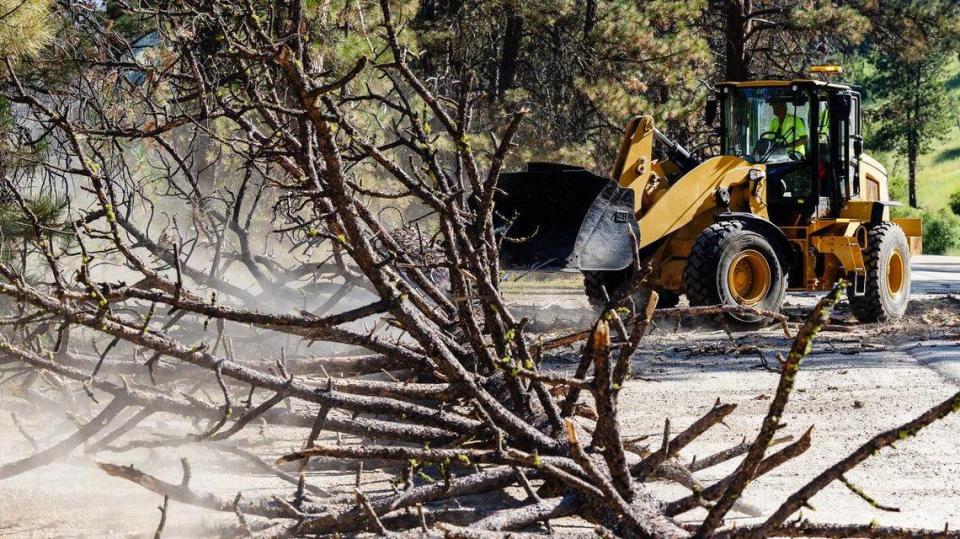As Boise residents seek shelter from extreme heat this summer, tree canopies may seem like the perfect relief outdoors. But those leafy branches pose another unexpected danger that comes with the hot weather.
Triple-digit temperatures in the City of Trees have been causing otherwise healthy tree limbs to fall unexpectedly — a condition known as sudden limb drop syndrome.
Mike Andrews, the city’s forester, said the syndrome is more common in middle-aged to mature trees. Boise’s forestry team is working hard to remove fallen branches as quickly as possible but can’t do much to prevent it from happening, he said.
“I don’t want people to just be scared of sitting under a beautiful tree, but you should be aware of your surroundings,” Andrews told the Idaho Statesman. “For the last couple of weeks now, we have just filled up our days with tree limb removal.”
Arborists can’t often predict which trees will be susceptible to limb loss, Andrews said, though the city — when it’s not busy with branch removal — prunes and removes foliage on trees to reduce the chances they fall prey to the syndrome. Branches that grow parallel to the ground are more likely to snap off, and pruning those branches can help mitigate risk, he added.
Fallen or damaged branches in public spaces can be reported to the city’s Community Forestry staff, and officials prioritize removal based on hazard levels.
“Many of the fallen branches don’t drop off within seconds, but if you don’t notice the signs, it can be dangerous,” Andrews said.
ITD monitors tree health
The Idaho Transportation Department, however, hasn’t seen an increase in dropped branches this year, spokesperson John Tomlinson told the Statesman.
Most of the trees are mature and healthy when they begin to lose limbs because of extreme temperatures, though ITD has also had to remove dead trees along Idaho 55 that posed serious hazards to drivers.
Last year, a dead ponderosa pine fell on a car along the popular highway during a windy storm and killed a 13-year-old boy who was traveling with his grandmother. A month after the fatality, the agency removed 150 dead trees that stood near the road along the same area, according to previous Statesman reporting.
The ITD team continues to monitor tree health and work with state and federal agencies to remove hazards, and will begin pruning and tree removal along Idaho 55 within the next few months, Tomlinson told the Statesman.

Fallen tree limbs will continue with climate change
While arborists still don’t know what causes sudden limb drop, they have two main theories, Andrews told the Statesman.
One theory: Hot temperatures cause trees to retain water within their wood, resulting in water weight the branches can’t handle. The other theory involves tree cells, which expand and contract as they move around more water in high heat. The constant contractions buckle and crack the wood, resulting in less stable tree branches that eventually snap off.
“There’s still a lot of debate about why trees will completely shed healthy limbs during hot temperatures,” Andrews said.
Whether trees that have lost limbs will recover depends on the size of the tree, the branch that fell, and how much of the tree was lost, Andrews added.
Tree disease, underwatering and insect infestations can also affect tree health, especially during prolonged periods of hot temperatures, said Zachary Zehnder, a Boise certified arborist at SavATree LLC, a lawn care company.
Maintaining health is important to reducing the risk of tree deaths, Zehnder told the Statesman. Although the likelihood that tree death and falling limbs will injure people is rare, there is also a threat of damage to houses and other buildings, he added.
To reduce risk, homeowners should water their trees, use insecticides and fertilizers, and keep an eye out for signs of heat stress in trees, like curling bark and burnt leaves.
“This will definitely be a problem that’s going to continue with overall climate change,” Zehnder said.
Source Agencies


